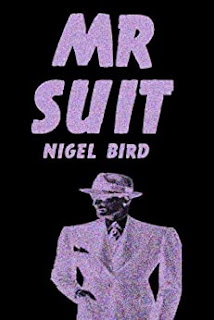Just over twenty years ago, my wife and I took on St Cuthbert's Way. Though time fades the memories, they're still there. I left my book of short stories in Melrose Youth Hostel where we kicked things off with a short bus ride. We got lost on the way to Wooler Youth Hostel and added quite a few miles onto the journey. When we arrived at Lindisfarne the tide was in and the walk was over. Our legs were so done that we struggled to get to our accommodation, a lovely pub run by an ex-miner and Sunderland fan (hence the establishment name, The Black Cat- now defunct). The marrow competition was over. We watched some crap on the TV. Slept the deep sleep of the exhausted. It was a good trip.
Since then we've been back to the island many times. Never as pilgrims, I hasten to add, but as lovers of the space and beauty of the surroundings. My favourites have been when walking along the Pilgrim's Way marked out by poles in the sand, accompanied by the wind, the birds and the barks of the seals. If you haven't been and you're in the area, try it out.
My fondness for the area was part of the reason for me wanting to read Cuddy. Other reasons? He was born in Dunbar which has been my home town for twenty years. And the author, Benjamin Myers, is a wonderful story teller and poet who deserves every bit of his recent success.
I didn't always find Cuddy straightforward and do think it's the kind of novel that requires the reader to make an effort.
It's like a sandwich. On second thoughts, it's more like a layer cake with it's several tales and sections stacked up and sometimes interweaving. In some ways, I'd have preferred the sandwich as my favourite sections were the beginning and end.
Books 2 and 3 weren't my cup of tea. I don't know why, exactly. I simply got stuck in the prose and drifted away.
Which leaves Books 1 and 4.
Book 1 tells the story of the holy men carrying around Cuddy's coffin to keep him safe from invading marauders. The style is meandering, introspective and beautiful and has the pace of the wandering monks. They're searching for the place to bury the bones and are waiting for a sign. The observations are lovely. The monks themselves are as frail as any group of humans stuck together. There are conversations between the dead Cuddy and the monks' cook and herbalist, Ediva, who also chats freely with the mysterious and delicate Owl Eyes. I found this hypnotic, moving and a joy.
Even in Book 1, however, there are sections I didn't care for. There are breaks that offer snippets of research in quote form. They show contradictions and curious slices of information, but I could have done without it. Perhaps this is what the publishers mean when they say it's experimental (given the wealth of writing out there, that's some claim, though this certainly doesn't conform to contemporary publishing norms within the mainstream). There are also sections that become increasingly diminutive to the point where my aging eyes could no longer read the text and I wasn't interested enough to get my magnifying glass (perhaps this is the experimental approach). I'm sure there was a point, I just didn't get it.
Book 4 is terrific, with no caveats. A frail youngster, living with his dying mother and with a personality that makes people want to take him under his wing, owl-eyed and with a particular intelligence, deals with growing up while taking on work in Durham cathedral. I'd have read it by itself as a stand-alone, though what has gone before adds further richness. It also adds the icing the that layer cake I mentioned.
A game of more than two halves that opens with brilliance and ends with power.
I loved
quite a lot of it
i really did


.jpg)
